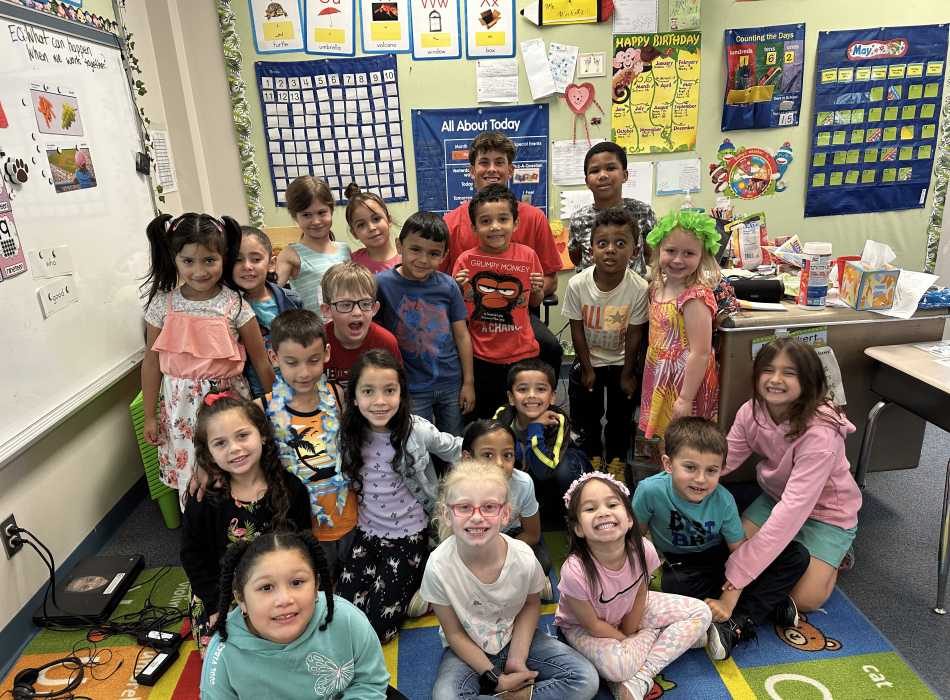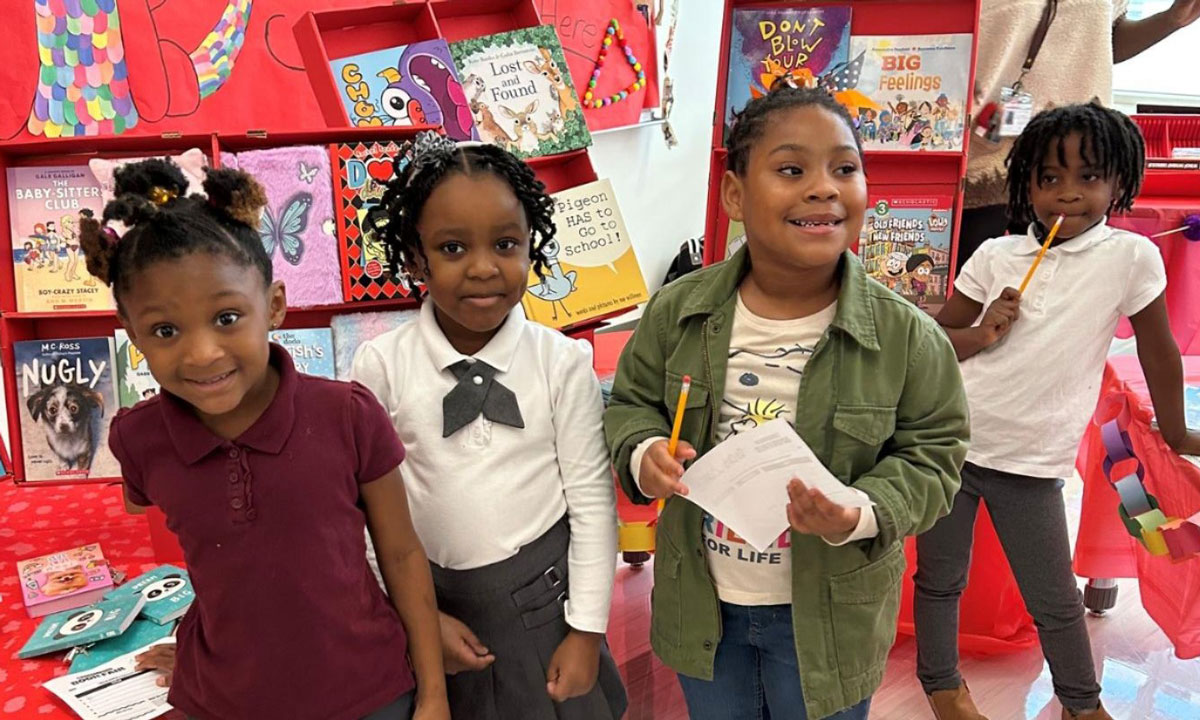How Private School education differs from traditional learning
Wiki Article
Imaginative Understanding Activities in Preschool: Enhancing Abilities With Play and Interaction
Imaginative learning activities in preschool act as fundamental experiences for young learners (Grade School). These activities motivate skill development through playful involvement and social interaction. Children explore their imagination, improve communication, and learn important social skills. Each experience adds to their development in one-of-a-kind means. Comprehending exactly how these tasks form early development discloses the extensive effect of play in education. What certain components make these experiences so efficient in nurturing well-shaped individuals?The Duty of Play in Early Childhood Development
While numerous might underestimate the value of play, it serves as an essential element of very early youth advancement. Through play, children explore their atmospheres, foster social skills, and establish cognitive capacities. Engaging in disorganized tasks allows them to use their creativity, trying out analytic, and enhance their important thinking skills. Additionally, play offers a secure space for psychological expression, making it possible for kids to navigate their sensations and develop resilience.Additionally, play urges physical advancement as children involve in activities that boost their motor abilities and coordination. Communication with peers throughout playtime advertises teamwork and communication, laying the foundation for future connections. Kindergarten. Educators and parents identify that play is not merely a pastime yet a crucial element of discovering, shaping a youngster's capacity to adapt and grow in numerous situations. Ultimately, play enhances children's lives, preparing them for the difficulties of the future while cultivating a lifelong love for learning
Creative Arts and Crafts: Sparking Creativity
Innovative arts and crafts play a considerable function in firing up youngsters's creative imaginations and improving their imaginative skills. These activities urge self-expression via various tools, such as paint, drawing, and sculpting. By taking part in hands-on projects, kids learn to manipulate products, promoting fine electric motor abilities and hand-eye sychronisation.Moreover, creative arts provide a system for essential and problem-solving reasoning, as kids check out different methods and methods to their creations. This expedition allows them to experiment, choose, and pick up from their experiences.
Cooperation is one more key facet, as kids commonly work with each other on group tasks, sharing resources and ideas. This communication not only develops social skills yet likewise nurtures a feeling of neighborhood. Inevitably, imaginative arts and crafts offer as necessary tools in a preschool setting, promoting cognitive, emotional, and social development while stimulating the inherent interest and creativity of young students.
Interactive Storytelling: Structure Language Skills
Interactive storytelling functions as an effective tool for building language abilities in children, as it engages them in the narrative process and motivates energetic participation. Through narration sessions, children are welcomed to listen, react, and even add to the unraveling story. This interactive format supports vocabulary advancement by revealing them to new words in context.As they take part, kids practice necessary communication abilities, such as expression and expression. They find out to series events, determine characters, and understand the plot, cultivating critical thinking. Furthermore, interactive narration typically integrates aesthetic aids, audio results, and props, which even more enhance engagement and understanding.
Moreover, when kids share their own stories, they experience a sense of agency and creative thinking, enhancing their language abilities in an encouraging environment. Eventually, interactive narration grows a love for language and literature, setting a my company solid foundation for their future academic success.
Hands-On Science Experiments: Urging Questions
Hands-on science experiments offer young learners with vital possibilities to check out and inquire about the anonymous globe around them. Engaging in easy, interactive experiments allows kindergarteners to ask concerns, make predictions, and observe results firsthand. These activities stimulate interest and cultivate a feeling of wonder, encouraging youngsters to examine the homes of products, reactions, and natural sensations.Experiments such as planting seeds or mixing baking soft drink and vinegar not just illustrate clinical principles however also improve crucial believing skills. Youngsters find out to record their observations, advertising proficiency and numeracy as they determine, contrast, and document data. In addition, hands-on scientific research cultivates a development frame of mind, training durability as they navigate obstacles and learn from blunders.

Collaborative Gamings: Promoting Team Effort and Social Skills
Participating in collective games provides kindergarteners an unique platform to develop synergy and social abilities while improving the inquiry-based discovering cultivated by hands-on science experiments (Grade School Peoria). These games encourage children to interact toward common goals, advertising interaction and participation. As they navigate different difficulties, they discover to share duties, discuss roles, and solve conflicts-- vital components of reliable teamworkWith organized activities such as team puzzles, relay races, a knockout post or cooperative narration, kids not just enhance their social interactions but likewise strengthen their emotional intelligence. They get insights right into empathy and support, finding out that each youngster's payment is important. In addition, these joint experiences promote a feeling of community within the class, producing bonds that prolong past specific play. By incorporating collaborative video games right into the educational program, educators can prepare for vital life skills that will benefit children in their future instructional and social settings.
Frequently Asked Concerns
Exactly How Can Parents Assistance Creative Understanding in the house?
Moms and dads can sustain creative discovering at home by supplying varied products, motivating exploration, involving in imaginative play, asking open-ended inquiries, and promoting a risk-free environment where kids feel cost-free to reveal their ideas and creativity.
What Materials Are Ideal for Arts and Crafts Activities?
A variety of materials improve crafts and arts tasks, consisting of building paper, scissors, adhesive, markers, paints, and recycled things. These resources inspire imagination and permit kids to explore their creative imagination via hands-on experiences.Exactly How Do Educators Assess Kid's Imagination?
Teachers analyze kids's creativity with monitorings, portfolios of work, and open-ended tasks that urge self-expression. They examine analytical skills, originality, and readiness to experiment, giving understandings right into each kid's unique innovative advancement and capabilities.What Are Some Instances of Outdoor Creative Activities?

How Can Social Styles Be Integrated Into Creative Learning?
Social themes can be incorporated right into imaginative discovering by incorporating varied tales, music, art, and practices, encouraging children to discover and celebrate different backgrounds, promoting inclusivity and understanding while enhancing their creativity and cognitive skills.Children discover their creativity, boost communication, and find out valuable social skills. With play, kids explore their settings, foster social abilities, and develop cognitive abilities. Furthermore, play encourages physical development as youngsters engage in activities that boost their electric motor abilities and control. Creative arts and crafts play a significant duty in igniting children's creativities and improving their imaginative skills. Interactive storytelling offers as a powerful device for constructing language skills in young youngsters, as it engages them in the narrative procedure and motivates energetic involvement.
Report this wiki page